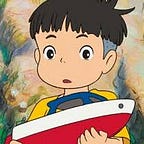How do you quantify personality?
Over three quarters of employers say personality traits are just as important as the specific skills needed to perform a job function.
It begs the question, how do employers know what personality will fit best into their existing team dynamic and company culture? The simple answer is, they don’t know. Not right now anyway.
According to the sadly defunct company Herd Wisdom, almost a third of all of employees who plan to leave within their first year cite feeling ‘disconnected’ with their organisation. On the other side of the spectrum, nearly 70% of employees say friends are a reason to stay in a role.
In a working world where we’re all more motivated than ever to be part of a tight team doing great things, how can we quantify a job-seeker’s personality and sort through it without escalating a potential wrong fit to the expensive and time-consuming interview stage?
At BASEPL8 we pre-rank applicants based on their closeness to an ideal company role profile, across core areas including education, experience and technical skills, but also personality traits too, including:
BEHAVIOURAL COMPETENCIES
Behavioural competencies describe the actions needed to be done in a job — they are about the attitudes and disposition required for the role, rather than the knowledge or skills needed to carry out the work.
Whilst all jobs will require many different competencies, most roles will tend to have a focus on one or two clusters that are more important than the others.
The classic example is the divide between customer-facing social competencies and more data-driven individual analysis traits. Are you looking at an applicant with a preference for social situations applying for a backend file management position? Or a reclusive technical expert, looking to join your customer advocacy program? If so, it’s probably not going to be the right fit.
PERSONALITY
Some workers will be flexible, other will be focused on process. Some workers will be big thinkers but lax on the little things; others niche experts who fail to grasp the wider picture. Some will be collaborative. Some will be lone wolves.
Forewarned is forearmed. If you have an understanding of the general personality traits filling your office today, then then you can begin to build a profile for what sort of personalities would be a good fit for the team going forward.
But beware, that does not mean you should look for candidates who act in the same way as the rest of your team! There is a mountain of research to suggest that more diverse personalities actually mean more successful teams.
For example, analysis of 25 years of records from Stanford University’s mechanical engineering design program, indicates that performance improves when a team pays attention to its members’ individual personalities. “In other words, teams do better when they are composed of people with the widest possible range of personalities, even though it takes longer for such psychologically diverse teams to achieve good cooperation.”
We ask a job applicant 10 custom-designed questions, aimed at quickly assessing their personality disposition, then ranking it against the company’s role preferences.
CULTURE
As with personality, working cultural preferences is an area at its strongest when it is diverse. BASEPL8 focuses on two core quadrants when it comes to understanding how a potential job applicant will work to complement an existing business culture. The first is the indefinite to definite — pessimism to optimism scale.
First put forward by PayPal cofounder Peter Thiel in 2014, the concept holds that companies can be divided into roughly four types. The definite optimist organisation has a plan for the future and believes where they will be tomorrow will be better than where they are today. The indefinite optimist is more reserved and, whilst the organisation believes the future will be bright, they are more amicable about the path they take to get there.
Meanwhile, the definite pessimist has a vision in mind for the future but is even more cautious still, believing what is to come will largely be negative, and taking active steps to safeguard their company through process and methodology. Finally, the indefinite pessimist has the most negative view of the future, believing in structure and organisational rigidity to combat the bear markets that will surely follow.
The second measurement framework we use is the idea of independence versus inter-dependence and flexibility versus stability. Both traits have an overriding importance to an individual’s working style. By combining these two matrixes attributes together we get an understanding of the macro culture of both the company and the individual as well as the applicant’s more granular work ethos. From this we generate a full overview of how well job applicants would fit into a given role in a given company.
VALUES
Finally we have values. Values are a rallying cry. They are beliefs and ideas that drive a person forward, and motivate them to not only go into work, but also to crush it each and every day that they are there. If the values match between the job applicant and the company then you will both drive towards the same objectives together. BASPL8’s values are Vision, Optimism, Determination and Achievement.
So that’s it. That’s how we gather a snapshot of a person’s personality, pre-interview and present it to hiring companies so they can get a true sense of fit across the dozens of applicants applying for a role. If you’d like to be a part of this movement, please email james@basepl8.com.
Let’s ditch the Résumé.
